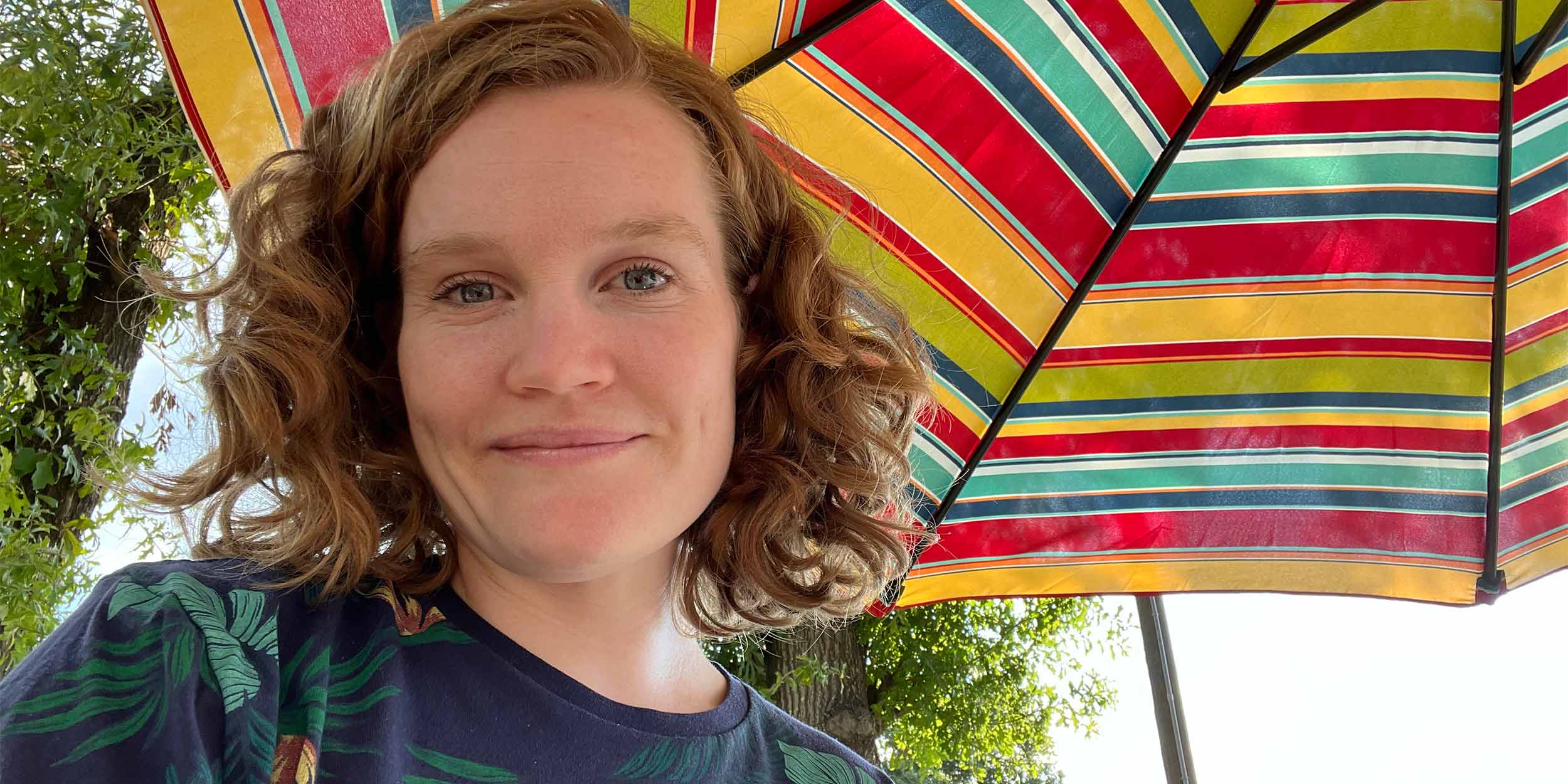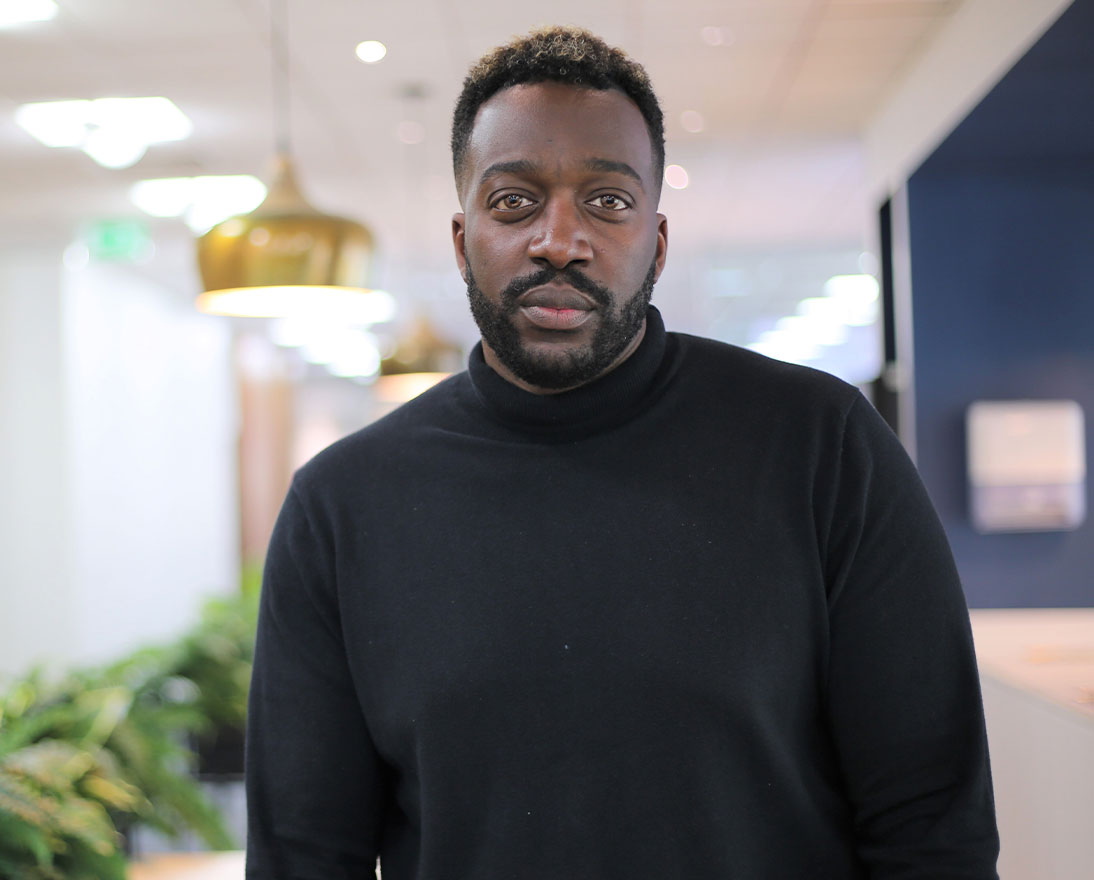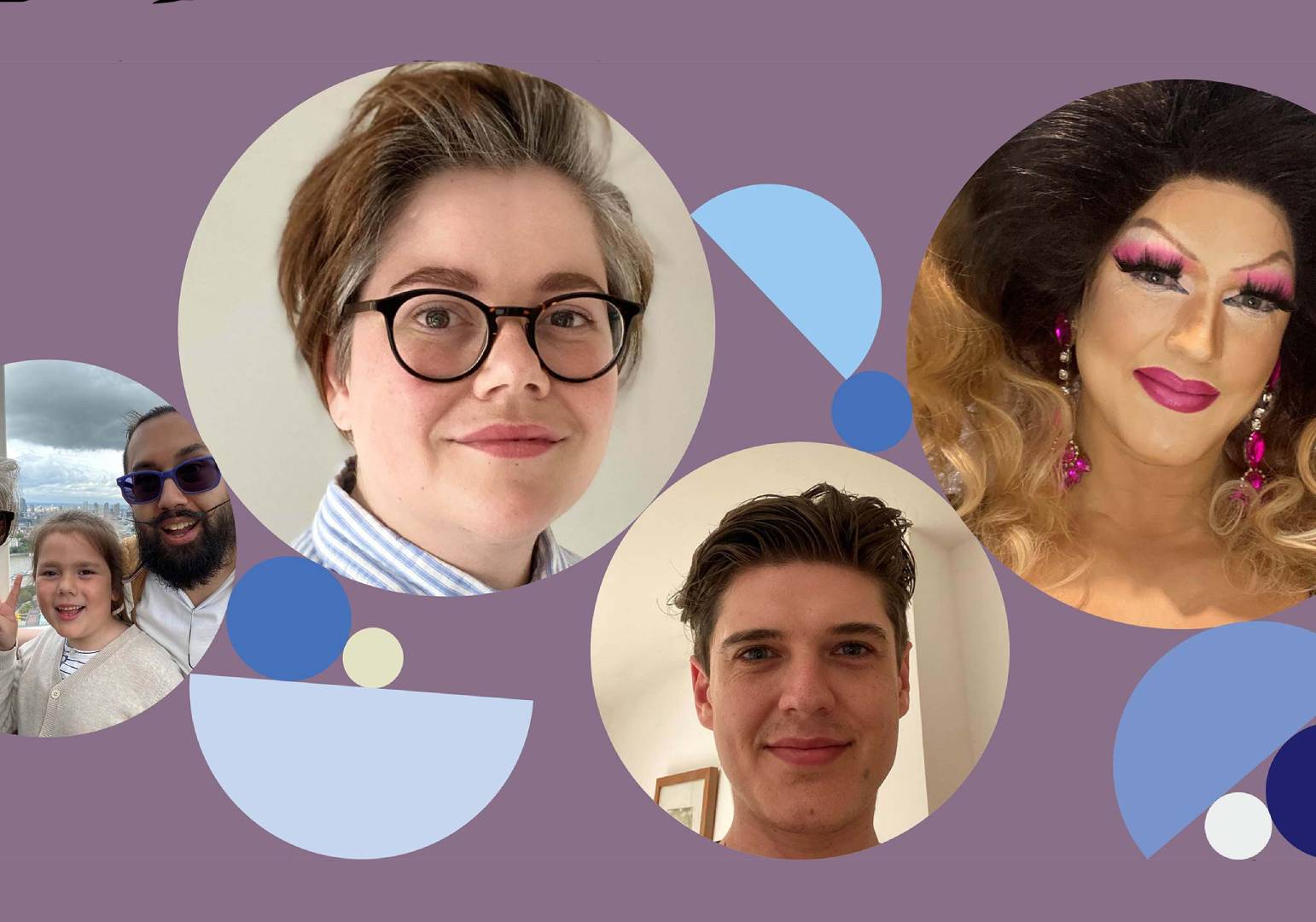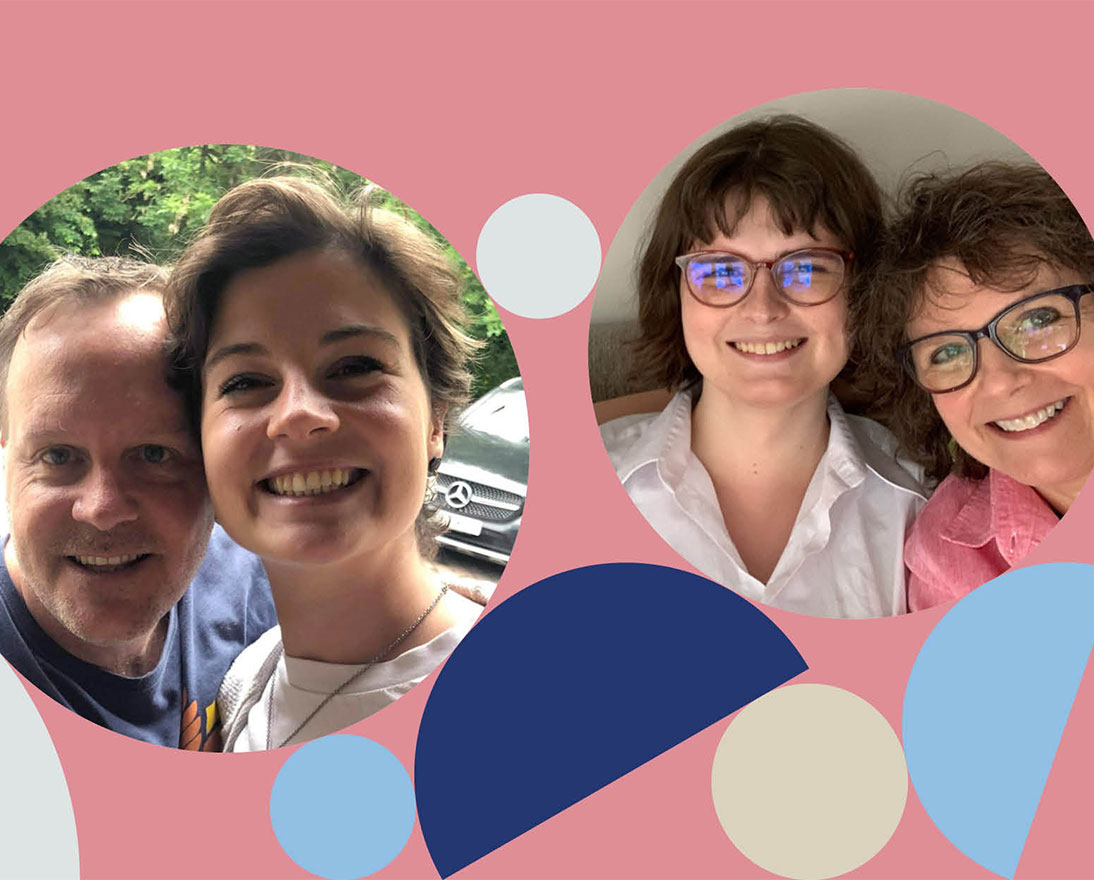Life of bi: What is it like for people who identify as bisexual?
Diversity and inclusionArticleSeptember 23, 2023
Think bisexuals have the best of both worlds? Think again. They often experience stigma, exclusion and discrimination, and as a result many remain closeted. Zurich employees share their feelings about what it means to be bisexual.
“I was really scared that my friends – especially my then partner’s friends – would think coming out as bisexual would mean I was going to be unfaithful,” says Roisin Geraghty, who works at Zurich UK and is former chair of its LGBTQ+ employee network Zurich Pride UK.
“There’s this weird kind of story we’re told that bi people are incredibly promiscuous and can never be monogamous,” adds Roisin. “Double the opportunity, double the promiscuity, double the chance of cheating, double the sexuality. That rhetoric needs to stop.”
Stereotypes about bi people go beyond jibes about promiscuity. They often experience stigma, exclusion and discrimination with their identity regularly questioned.
“Bisexuality is the same as being straight or gay apart from the fact that when I look at someone, I don’t see a gender, I see a person,” says Chloe MacIntosh, a Zurich UK employee who identifies as bisexual and pansexual interchangeably.
The problem is that not everyone views it that way. Bisexuals are often considered to be confused and indecisive, labeling themselves as bisexual while deciding if they are gay or straight. A common misunderstanding is that bisexual men are just closeted gay men using bisexuality as a bridge to homosexuality. Another misconception is that women become bisexual in part to arouse men.
“Phrases like, ‘You’ve got to make up your mind,’ have often been said to me,” says James Read, a Zurich UK employee who has identified as both bisexual and pansexual for seven years. “My boyfriend back in 2018 just refused to accept that I was bi. There are some people in the gay community who are a bit distrustful of people who identify as bisexual.”
These stigmas can easily turn into “biphobia” – prejudice toward or negative attitudes about bisexuals from both the heterosexual and LGBTQ+ communities. This can cause mental distress and struggles with self-acceptance.
This sometimes affects Chloe. “I know I’m attracted to all genders,” she says, “but I grew up hearing people in school talk about how bisexuals are ‘selfish’ and ‘just need to pick a side.’ The stigma internalized for me. For years I suppressed my attraction to women and just dated men to save having to explain who I was to others and defend myself.”
It’s no wonder bisexuals are twice as likely to stay in the closet compared to lesbian and gay people. Only 36 percent of bisexuals come out to their friends compared to 74 percent of their gay/lesbian counterparts, according to Stonewall, an LGBTQ+ rights charity. But remaining closeted has a negative impact – the same research finds that bisexuals are more likely to suffer from mental health conditions, such as depression and self-harm.
The differences between bisexual and pansexual
The term bisexual came into common use in the 1970s and 1980s to describe someone attracted to “both” men and women – hence the “bi” prefix.
In the past two decades – as gender identities have evolved – some people consider the term “bisexual” to be non-inclusive and prefer the term “pansexual.” The prefix “pan” (meaning “all”) suggests attraction is not limited by gender – i.e., you may also be attracted to trans, nonbinary and gender fluid individuals.
“Bi” and “pan” are sometimes used interchangeably. For instance, LGBTQ+ rights charity Stonewall uses the term “bi” to refer to people who “have a romantic and/or sexual attraction towards more than one gender.” If in doubt, just ask. Some people attracted to more than one gender identify as both bi and pan, some as one or the other and some as neither.
Suppressing their sexuality
Erin Hanlon, who works for Zurich North America, suppressed her pansexuality for many years due to a traumatic experience at her high school in a conservative town in Texas.
“Homophobia was rampant,” recalls Erin. “The general opinion among my peers was that being gay was disgusting. Fewer girls were out, but if there was speculation that they were lesbian or bisexual they were deemed a freak and not to be associated with. So, when I started realizing my feelings for females went beyond friendship or admiration, my fear of being ostracized kept me in the closet.”
But sadly, Erin was cruelly outed. “I was outed at our high school homecoming dance and humiliated by my entire friend group. That night caused a chain reaction that heavily influenced the next six years of my life. My self-esteem plummeted and I started to hang out with the wrong people.
“Bisexual women are considered the highest risk for sexual harassment and violence, and I am an unfortunate example of that statistic. At 21, I was in an abusive relationship, succumbing to depression and drinking heavily,” Erin says.
But just as her mental health hit an all-time low, Erin discovered she was pregnant. “Having someone else to live for flipped a switch for me. Suddenly I was to be someone’s role model and I slowly started healing myself.”
Today, Erin is in a happy five-year relationship with Keath. “He identifies as straight but is an incredibly supportive ally, has never questioned our monogamy, and is keen to better understand the different facets of the LGBTQ+ community,” Erin says.
“I embrace who I am now,” she adds. “It’s impossible for me to imagine only liking one gender. But I spent so long suppressing this that I feel I missed out on part of my personality. It doesn’t mean I’m unhappy with where I am now – I may not have had my daughter, who is my whole world. But there’s always the thinking, ‘If I’d come out sooner, how would things be?’”
Roisin came out in 2020, but like Erin, may have come out a decade earlier if it wasn’t for negative experiences at school. “My friends at that time told me I was only flirting with girls to get the attention of boys,” she says. “I felt embarrassed, ashamed and weird. So I just shut it down. I stopped seeing girls in that way. I wish I hadn’t allowed my school friends to push it aside and repress my attraction to other women.”
Straight, gay or something else?
Growing up in rural Devon, in the southwest of England, James assumed he was straight – “the term ‘gay’ was used as an insult at school,” he recalls. But at university, when James experienced his first relationship and sexual encounter, it was with a man. James soon came out as gay and continued to be attracted to men.
But at 25, when he was in a serious relationship with a man, James says, “I completely and utterly fell for a girl I worked with.”
“It was a mutual attraction,” he says. “It surprised and confused me as I’d been gay for a while and now I was fancying women again.” James split with his boyfriend and, although he didn’t have a serious relationship with the woman from work, he considered himself straight for the next five years.
“For most of my 20s and almost all of my 30s, I flip-flopped,” he says. “I’m gay now because I’m with a man; I’m straight now because I fancy a woman.” Finally in 2017, James decided to identify as bisexual and pansexual. Identities that James intends to keep whether his next relationship is with a man or a woman.
Still exploring
Chloe is exploring her sexuality in a way that Erin and Roisin could not. “Some people who are bi may prefer men, women or nonbinary people. For me, there’s not really a preference. It’s more about what someone is like as a person.”
Chloe is happy to date anyone regardless of their gender identity or sexual orientation. But despite first acknowledging she was attracted to women 14 years ago; Chloe has only started dating women this year.
“I came out in school when I was 15, but I felt everyone hated me,” recalls Chloe. “I started to hate myself a bit too and would chase external validation from men in an attempt to feel better. Over time, I’ve grown to accept myself for who I am. I worry less about what others might think, and I give myself the love and acceptance I deserve instead of seeking it from others. Challenging how I think about and look after myself, and forming healthier habits, has helped me grow into a much happier person.”
Chloe is still finding her feet with dating women. “I’ve had experiences with men where they’ve made me feel uncomfortable,” she says. “I would never want another woman to feel like that, so it makes me a little nervous when approaching women.
“I’m enjoying exploring this part of my identity. Like trying anything new, it’s been a little daunting but mostly rewarding. I only wish I’d done it sooner.”
Not just about sex
One thing that frustrates Chloe, Erin, James and Roisin about bisexuality is that many people assume they are promiscuous. “There’s a misconception with bi people that it means you’re forever wanting to have sex with everybody,” James says.
“It frustrates me when I open up as pansexual, people automatically think you want a boyfriend and a girlfriend,” Erin adds. “But you don’t want both. It’s just that you are open to either.”
“We’ve been taught to think that LGBTQ+ identities are X-rated and they’re not,” Roisin says. “We lose some of the nuances about love and attraction when we make it only about sex.”
It’s important to recognize bisexuality as a standalone identity. Although she was in a long-term relationship with a straight man at the time, Roisin felt it was important to be true to herself by coming out as bisexual. “Everyone should be able to be proud of who they are, and this is who I am. It’s the attraction I feel. That’s how I experience love.”
For anyone out there reading this and questioning their own sexuality, Erin has these final words: “Be comfortable pursuing it. If you don’t, you might end up feeling you missed out. And don’t hide it for somebody else and then do yourself a disservice in the long run.”



